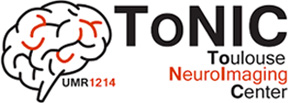Recherche translationnelle en santé,
technologie pour la santé et recherche clinique

DETERMIND (in the making) / Axis 2. Determinants of cognitive impairment and the effectiveness of cognitive remediation
The ‘determinants of cognitive impairment’ part of this theme focuses on the cognitive, behavioural, emotional, affective and motor characterisation of neurological and psychiatric pathologies and their neuronal substrates. These results are used in the ‘Determinants of the effectiveness of cognitive remediation’ component to develop targeted interventions. Using diffusion, perfusion, functional connectivity and brain activation imaging, EEG and behavioural data from neurological and psychiatric examinations, these studies will make it possible to define patterns of disorders, their associations and their frequency. The recognised skills of DeterMIND members in cognitive assessment and remediation are demonstrated by the team’s national and international collaborations and publications (presented in the DEVIN team report).
For example, we have shown that chronic cerebral hypoperfusion measured by TMAX in patients with Moyamoya angiopathy was specifically increased in frontal and parietal regions and represented an independent factor in inhibition and mental flexibility disorders (previously identified as cognitive signatures of the disease in a European cohort (Giroud, Calviere, et al., 2024), even in the absence of symptomatic ischaemic lesions (Giroud, Planton, et al., 2024). We have also shown in patients with amnesia associated with a left medial thalamic infarction that the volume of the mamillothalamic tract was correlated with memory deficits on the one hand, and with a functional connectivity defect in the DMN on the other (Danet et al., 2015, 2025. cf. Port-folio Axe 5 Devin). In addition, the MODEX project, using an SCED design in 14 patients with acquired brain damage, showed an improvement in mental flexibility performance in an ecological situation associated with an increase in spectral power in the theta and alpha frequency bands after 4 weeks of cognitive remediation coupled with transcranial tRNS stimulation (Lebely et al., 2024; Lebely et al., 2025). Another ongoing multicentre project, ARCoS-2, is evaluating the efficacy of a cognitive remediation method using rhythmic, vocal and corporal musical training for schizophrenic patients. DeterMIND projects in this area include work on 1/ the identification and measurement of influential individual factors (i.e. assessment of metacognition – METACOG project), 2/ the development of individualised predictive models of cognitive deficits integrating biological and multimodal MRI data applied to pathologies (i.e. unsupervised reclassification of primary progressive aphasia – VARAPP project; study of the prediction of the impact of thalamic lesions on cognition – THALEM project, cf. Portfolio Axis 5 Devin) 3/ on the efficacy of cognitive remediation as in the REMCOG-TC randomised controlled double-blind trial (i.e. the effect of attentional remediation combined with tDCS stimulation in patients with moderate to severe TC with measurement of the effect of apolipoprotein E and BDNF polymorphisms (Val66Met)).
